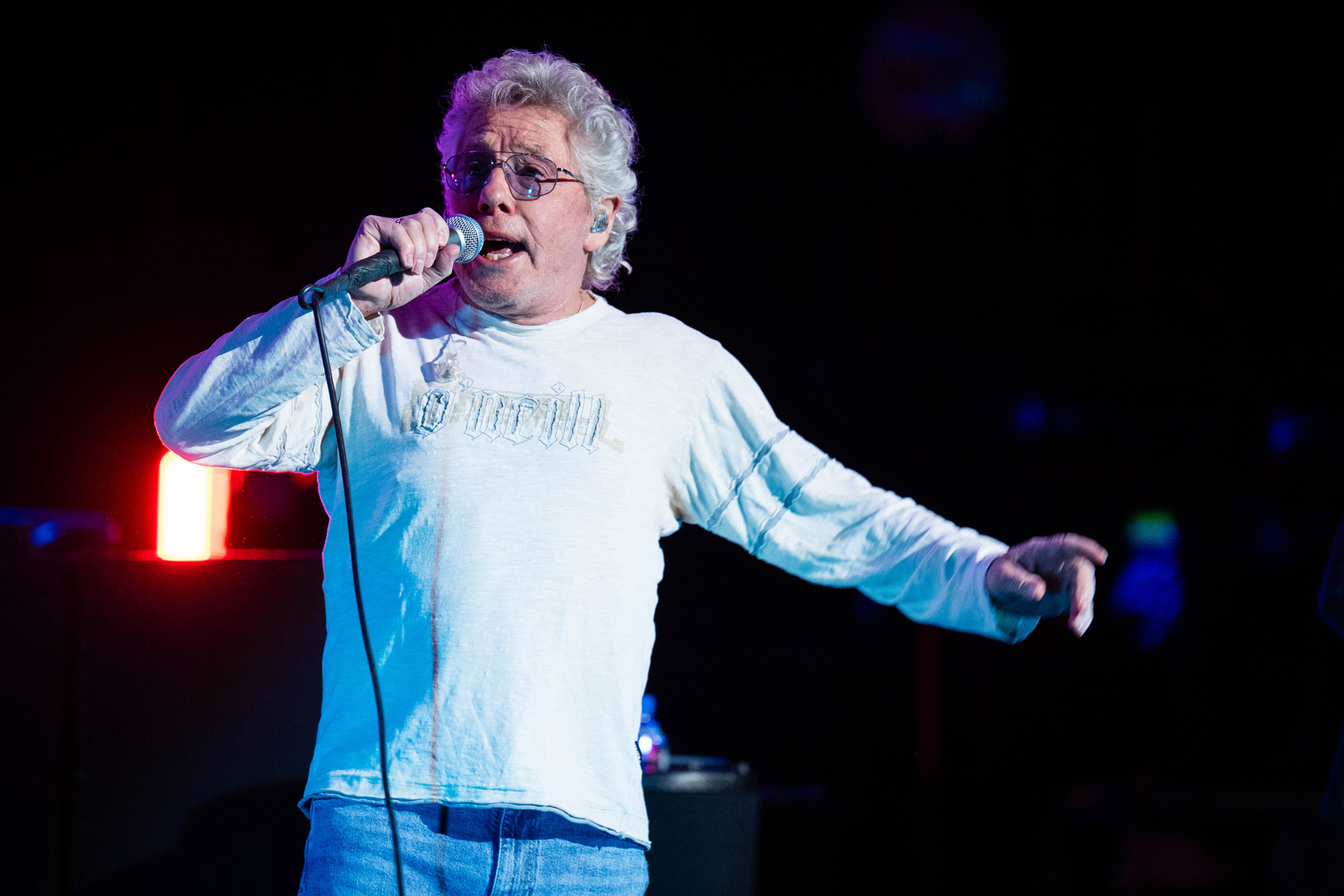Now Reading: Roger Daltrey’s Heartbreaking Health Confession Stuns Who Fans
-
01
Roger Daltrey’s Heartbreaking Health Confession Stuns Who Fans

Roger Daltrey’s Heartbreaking Health Confession Stuns Who Fans
In a bittersweet moment of life imitating art, Roger Daltrey has revealed he’s gradually experiencing the same sensory losses as The Who’s most famous character. The legendary frontman, who turned 81 on March 1, shared the emotional health update with fans during a recent London performance.
“The joys of getting old mean you go deaf. I also now have got the joy of going blind,” Daltrey told the captivated audience at London’s prestigious Royal Albert Hall on March 27, according to reports from Sky News. The candid admission left many longtime fans visibly moved.

A Poignant Tommy Reference That Left Fans Emotional
Despite sharing such difficult news, the rock icon maintained his characteristic resilience, immediately reassuring the crowd: “Fortunately, I still have my voice, because then I’ll have a full Tommy.”
For those unfamiliar with The Who’s legendary catalog, Daltrey’s reference carries profound significance. Tommy, the band’s groundbreaking 1969 rock opera, tells the story of a “deaf, dumb, and blind kid” who becomes a messianic figure despite—or perhaps because of—his sensory limitations.
The irony that Daltrey, who portrayed Tommy throughout his career, now faces similar challenges wasn’t lost on attendees. Many later shared on social media how the moment perfectly encapsulated the rock star’s unflinching honesty about aging in an industry that often prizes eternal youth.

A History of Hearing Struggles in Rock’s Loudest Band
This isn’t the first time Daltrey has spoken candidly about his hearing challenges. Back in 2018, during a Las Vegas performance, he delivered a characteristically blunt warning to fans about protecting their own hearing.
“Take your f–king earplugs with you to the gigs,” he advised the audience, drawing from his own experience of performing for decades with one of rock’s notoriously loudest bands. The Who were once even recognized by the Guinness Book of World Records for their ear-splitting 126-decibel performance in 1976.
Daltrey’s longtime bandmate, guitarist Pete Townshend, has also suffered from severe hearing damage and tinnitus throughout his career, making the frontman’s recent revelations all the more poignant for dedicated Who fans.
“I’m Ready To Go” – Daltrey’s Surprisingly Peaceful Outlook on Mortality
In a remarkably candid interview with The Times earlier this year, Daltrey reflected on aging and mortality with unexpected serenity. “My dreams came true, so, listen, I’m ready to go at any time. My family are all great and all taken care of,” he said in January 2024.
“You’ve got to be realistic,” the singer continued, displaying the same straightforward attitude that has defined his persona for six decades. “You can’t live your life forever. People my age, we’re in the way. There are no guitar strings to be changed on this old instrument.”
Townshend’s Knee Surgery and Jagger Comparisons
Daltrey isn’t the only member of The Who facing health challenges. During the same Royal Albert Hall show, 79-year-old Townshend revealed to the audience that he had recently undergone knee replacement surgery.
“Four and a half weeks ago, I had my left knee replaced,” he told the crowd with characteristic wit. “Maybe I should auction off the old one.”
In a moment of self-deprecating humor that delighted fans, Townshend admitted he had injured his knee attempting to move like fellow rock survivor Mick Jagger. The Rolling Stones frontman, also 81, continues to perform with his legendary energetic stage presence seemingly undiminished by time.
The Final Tour? The Who’s Future Remains Uncertain
These health revelations come amid speculation about The Who’s future. In 2023, Townshend hinted that the band might follow Elton John’s example with a proper farewell tour, though no definitive plans have been announced.
“I suppose Roger and I, at some point, will look ahead and try to work out whether or not we want to do an Elton John and end it in some way,” Townshend said, acknowledging the uncertainty that comes with aging. “It’s difficult to make a decision going forward, to say we’re going to do this or that because we don’t know how well we’re going to be or how fit we’re going to be.”
The Who’s journey, which began in London in 1964, has already endured significant losses. Drummer Keith Moon died in 1978 at just 32 years old, and bassist John Entwistle passed away in 2002 at 57—both deaths linked to substance abuse. The surviving members have continued to tour and record sporadically, with their most recent album, WHO, released in 2019.

A Legacy That Transcends Physical Limitations
For fans worldwide, Daltrey’s latest health update serves as a bittersweet reminder of rock’s mortality, but also of the enduring power of music to connect across generations. The poetic parallel between Daltrey’s current condition and the character that helped define his career adds a profound layer of meaning to The Who’s already rich legacy.
As Daltrey faces these challenges with the same unflinching honesty that has characterized his six-decade career, longtime fans may find themselves reflecting on one of The Who’s most famous lyrics: “The music must change.” Yet even as their physical capabilities evolve, the impact of Daltrey and Townshend’s contributions to rock history remains immeasurable and untouched by time.









